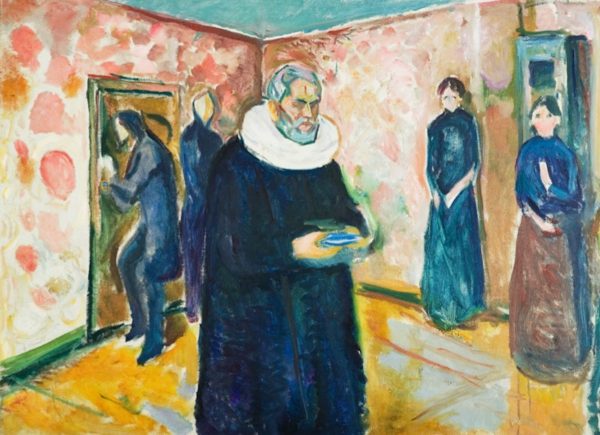
Who are we with, when we are alone? For much of western history the answer has been God or gods or some other sacred presence. The philosopher Socrates sought solitude in order to commune with his daimon, a divine inner voice. The Stoic Epictetus likewise encountered the god Zeus when alone. Many premodern Christians, both Catholic and Protestant, experienced solitude as a privileged site for divine revelation. For the highly devout, the hearing of God’s voice was often a central feature of solitary religious experience.
Yet spiritual solitude was always contentious. Religious recluses – hermits, monks, anchorites – were all seen as susceptible to accidie (a blend of ennui and gloom) and, much worse still, vulnerable to demons and the Devil. Protestantism brought widespread condemnation of spiritual seclusion. ‘By all means flee solitude’ Martin Luther counselled his followers, ‘for the devil watches and lies in wait for you most of all when you are alone.’
Today there are still many people who seek solitude in order to experience the presence of God. But a sense of inner presence is not confined to the spiritual. What about the internal voices – of conscience, consolation, recrimination, justification – that speak to us when we are alone? Where do these originate, and what do part do they play in our inner lives?
Further reading
- The Value of Solitude: The Ethics and Spirituality of Aloneness in Autobiography – book by John D. Barbour (2004)
- ‘Solitude among contemplative cloistered nuns and monks’ – article by Glòria Durà-Vilà & Gerard Leavey (2017)
- The Imitation of Christ – book by Thomas a Kempis (c. 1418-1427)
- Medieval Anchoritisms: Gender, Space and the Solitary Life – book by Liz Herbert McAvoy (2011)
- ‘Solitude and Prayer in the Late Lives of Elder Catholic Women Religious’ – article by Susan Perschbacher Melia (2002)
Further listening
- ‘A Short History of Solitude: Retreat’ – radio programme from BBC Radio 4
- Take The Words Right Out Of My Mouth – performance piece by Max Dovey & Nina Goedegebure
Blogs and colloquium papers
Our network of researchers have written many posts for our blog on solitude, spirituality and inner presence. You can read their blog posts here.
Over the course of our project, we met regularly with our research network to discuss the themes of our project. You can read a selection of their colloquium papers on solitude, spirituality and inner presence here.